Organic kale seeds are a nutrient-dense food source, offering significant health benefits due to their high content of essential fatty acids, protein, vitamins A, C, and K, and dietary fiber. These seeds support heart health, immune function, and bone health while aiding digestion and promoting gut health. Additionally, they are rich in antioxidants that combat […]
Welcome to Gnostic Garden
At Gnostic Garden, we believe in the power of nature and the joy of planting seeds that nurture the earth and our souls. As a premier organic seed supplier, we are dedicated to providing you with high-quality, sustainably sourced seeds that will flourish in your garden and contribute to a healthier planet. Whether you are an experienced gardener or just starting your green journey, our carefully curated selection will inspire your passion for gardening and self-sufficiency.
Explore our diverse range of organic seeds that are not only good for you but also good for the environment. We prioritize sustainability and ethical farming practices, ensuring that every seed you purchase contributes to a more sustainable ecosystem. Join our community of gardeners, learn from expert resources, and discover the joy of growing your own organic produce right at home!
Discover a World of Organic Gardening
- High-quality organic seed varieties
- Expert gardening tips and resources
- Community forums to connect with fellow enthusiasts
- Sustainable gardening practices and advice

Organic Cucumber Seed Varieties: Crispness, Growth Habits, and Best Pairings
Organic cucumber seed varieties are cultivated without synthetic fertilizers or pesticides, resulting in cucumbers that are often more flavorful and nutritious. Key organic varieties include ‘Marketmore 76’, ‘Lemon Cucumber’, and ‘English Cucumber’, each with distinct characteristics such as disease resistance, unique color, and texture. The crispness of cucumbers is influenced by factors like water content, […]
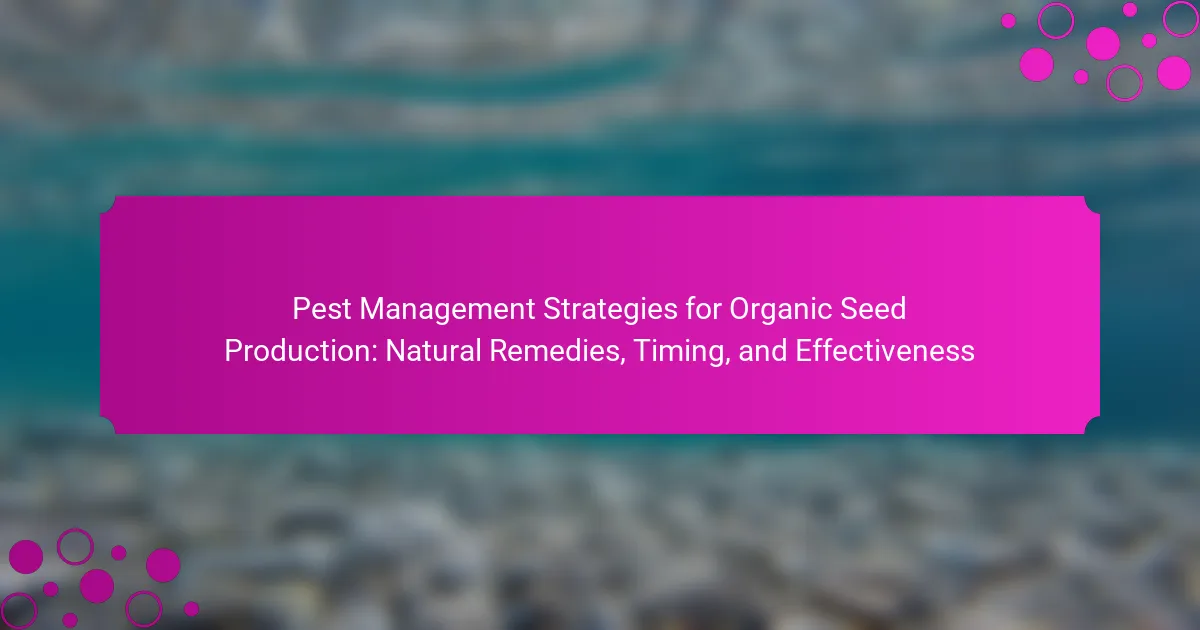
Pest Management Strategies for Organic Seed Production: Natural Remedies, Timing, and Effectiveness
Pest management strategies for organic seed production focus on maintaining crop health while minimizing pest damage. Key strategies include cultural practices such as crop rotation and pest-resistant varieties, biological control using natural predators like ladybugs, and mechanical methods involving physical barriers. Natural remedies, including neem oil, diatomaceous earth, and garlic spray, effectively reduce pest populations […]

Essential Guide to Organic Seed Storage: Benefits, Containers, and Temperature Control
Organic seed storage is the practice of preserving seeds from organic plants to maintain their viability and genetic integrity for future planting. This article outlines the essential aspects of organic seed storage, including the importance of controlling temperature, humidity, and light exposure to enhance seed longevity and germination rates. It highlights the best containers for […]

Effective Strategies for Long-Term Organic Seed Storage: Packaging, Storage Locations, and Maintenance
Effective strategies for long-term organic seed storage focus on three main aspects: packaging, storage locations, and maintenance. Proper packaging involves using airtight containers such as glass jars or vacuum-sealed bags to prevent moisture exposure. Ideal storage locations are cool, dark, and dry, with temperatures maintained between 32°F to 41°F (0°C to 5°C) and humidity levels […]
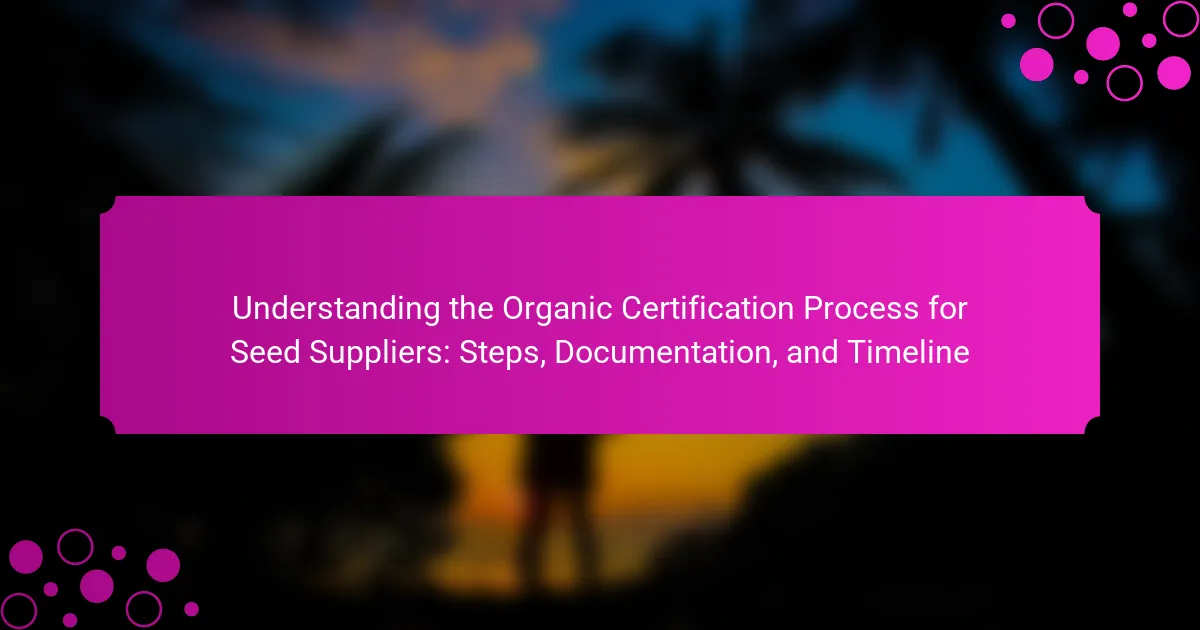
Understanding the Organic Certification Process for Seed Suppliers: Steps, Documentation, and Timeline
The organic certification process for seed suppliers is a structured procedure that ensures compliance with USDA organic standards. Key steps include selecting an accredited certifying agent, developing an organic system plan, and undergoing an on-site inspection. Documentation plays a crucial role throughout this process, requiring suppliers to maintain detailed records of their practices and inputs. […]
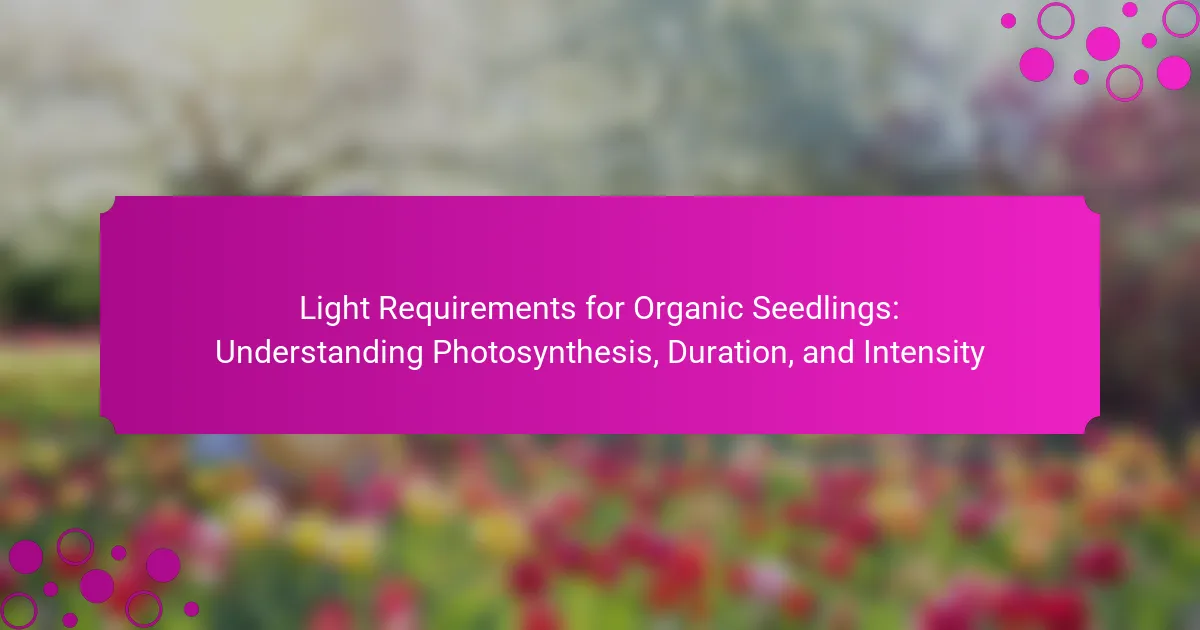
Light Requirements for Organic Seedlings: Understanding Photosynthesis, Duration, and Intensity
Organic seedlings require specific light conditions for optimal growth, including 12 to 16 hours of light per day to facilitate photosynthesis. Adequate light intensity, measured between 200 to 400 µmol/m²/s, is essential to prevent issues such as leggy growth or leaf burn. Various light sources, including natural sunlight, fluorescent lights, LED lights, and incandescent bulbs, […]
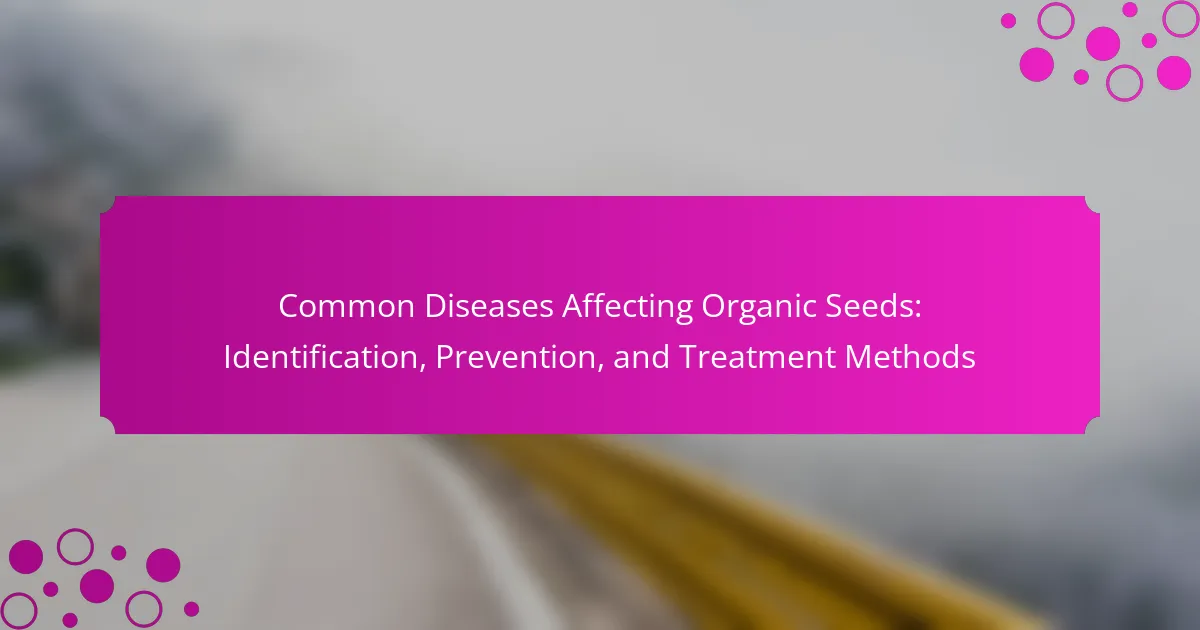
Common Diseases Affecting Organic Seeds: Identification, Prevention, and Treatment Methods
Organic seeds are susceptible to various diseases, including damping-off, seed rot, and downy mildew. Damping-off, caused by soil-borne fungi, can lead to seedling death, while seed rot occurs due to excessive moisture, hindering germination. Downy mildew is a fungal disease that affects multiple crops and can diminish seed viability. Effective prevention methods include using disease-resistant […]

Popular Organic Carrot Seed Varieties: Color Differences, Flavor Profiles, and Harvesting Methods
The article focuses on popular organic carrot seed varieties, specifically ‘Nantes’, ‘Imperator’, and ‘Danvers’. Each variety is characterized by distinct features: ‘Nantes’ is recognized for its sweet flavor and cylindrical shape, typically growing 6-7 inches long; ‘Imperator’ is favored for its crisp texture and longer, tapered shape, reaching up to 10-12 inches; while ‘Danvers’ is […]
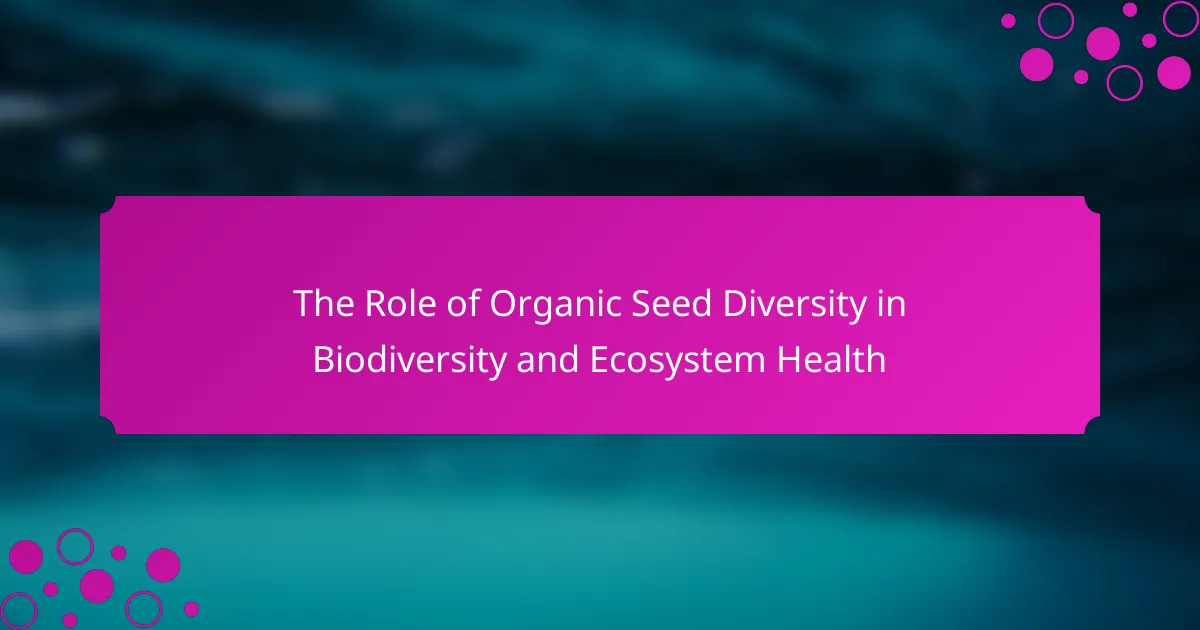
The Role of Organic Seed Diversity in Biodiversity and Ecosystem Health
Organic seed diversity is essential for promoting biodiversity and enhancing ecosystem health. It contributes to genetic variation among plant species, which improves resilience to environmental changes, pests, and diseases. Diverse seed varieties support beneficial insects and pollinators, leading to better soil health and increased agricultural yields. Research indicates that ecosystems with higher seed diversity are […]
